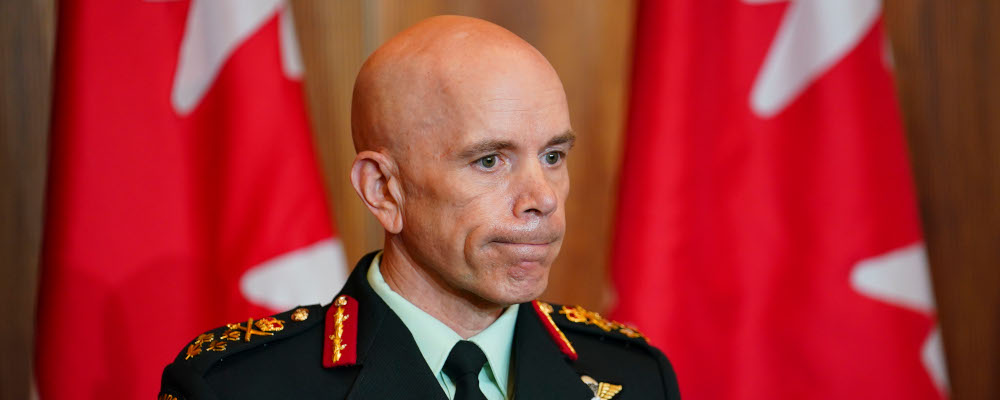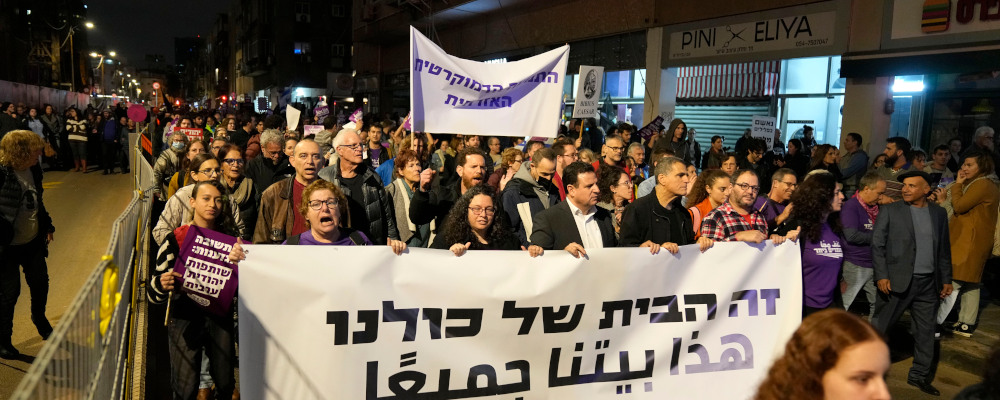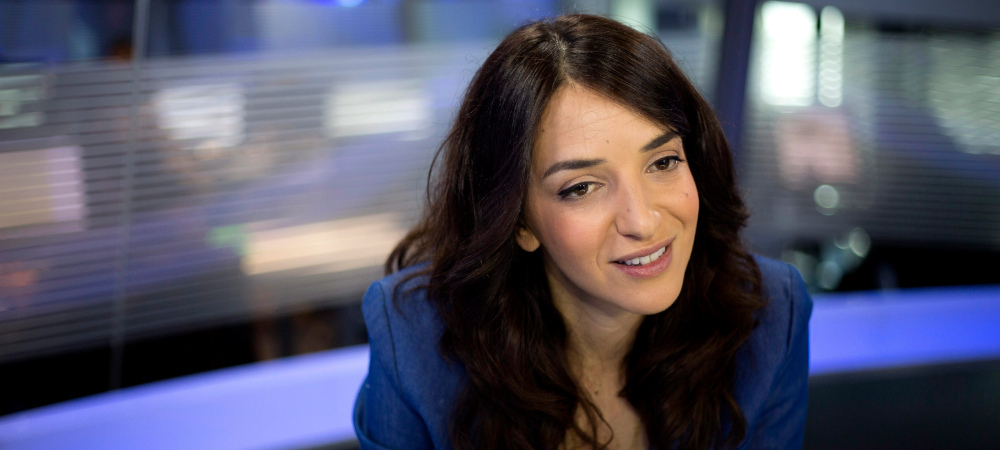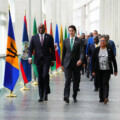Last week General Wayne Eyre announced that he intended to retire from the Canadian Armed Forces and step down from his position as Chief of the Defence Staff after 40 years of service. His retirement was unexpected but not necessarily surprising. The position is a demanding role where most who have served in the role last between three to four years, which is in line with the general’s retirement date.
As one would expect, there are already rumors about who may be called to replace Eyre. Lt. General Jennie Carignan is one name that has repeatedly come up, but it is a bit premature to make such predictions. Rather it would be helpful to look back at Eyre’s time as CDS and understand what his successor may face once they enter office.
Eyre’s legacy will likely be quite positive but also at the same time unremarkable. He was an unexpected choice after the removal of Admiral Art McDonald for allegations of sexual misconduct. Eyre would continually need to manage this fraught issue throughout his time as CDS, especially as a number of other senior leaders would also become snared by allegations and the need to see through wider cultural reforms became even more apparent. He would also become involved in the ongoing COVID-19 efforts, as well as dealing with the challenges of a renewed great power conflict, including overseeing support for Ukraine. Likely the most serious issue he faced, however, was the precipitous decline in the CAF’s military capability and readiness; he was forced to confront the triple-headed challenge of an antiquated equipment base, recruitment and retention, and over-deployment.
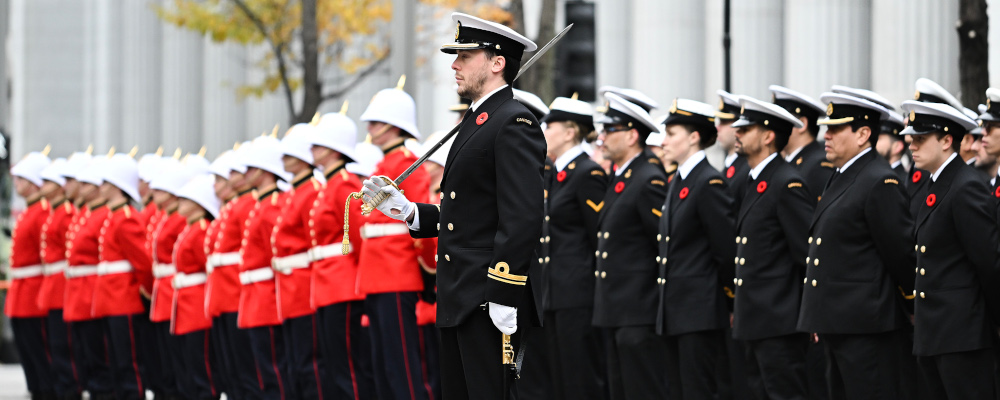
Due to the scale of challenges he faced and his adeptness at navigating them, it is difficult to find good precedents to compare to Eyre. The closest in recent memory might be Vice-Admiral Larry Murray, who also came in after the unexpected resignation of his predecessor due to scandal in 1995 and was forced to deal with multiple crises, including the Somalia Inquiry and the continuing post-Cold-War drawdown. Murray handled these issues with a quiet professionalism that was also well-regarded at the time. Unfortunately, the issues of the mid-1990s almost seem quaint given the scale of the challenges that are currently facing the CAF.
Eyre, for his part, has been deft at his position and has built up significant cachet among military members for his leadership. His most significant outward shift has been to become much more vocal and transparent about the state of the CAF while telegraphing some of his policy preferences. This broke with the precedent set by several of his immediate predecessors, who had generally shied away from making similar statements. Eyre seems to have set the tone for a number of other senior military leaders to make similar statements over recent months, like Vice-Admiral Auchterlonie and Vice-Admiral Topshee, concerning the state of the military and the challenges facing it.
Unfortunately, Eyre’s influence within government seems to have been lower than his public facade suggested. In a number of policy areas, he was seemingly overruled by the political leadership. For example, last Fall Eyre announced the Reconstitution Directive, which sought to limit all nonessential activities the CAF engaged in and cap the current commitments so that the military personnel system could regain its footing and rebuild its manning levels. Yet not 10 months later the government announced a doubling of the Latvian mission, which was precisely the type of stress the directive sought to avoid.
By design, the CDS should be one of the most important positions within government, commanding the military and its unique organization. In practice, however, modern chiefs have fought to maintain their authority within National Defence. This so-called “defence team” concept is where the civilian deputy minister and the chief sit at opposite ends of a spectrum of responsibilities from administration to command (respectively). There has always been a shifting balance between the two roles, and it is important to note that while the pendulum has not swung dramatically towards the civil side in the current dynamic, it has still shifted towards greater civilian influences, especially surrounding the culture change efforts.
The current political leadership’s governing style has further weakened Eyre’s influence. Instead of setting broader strategies and empowering individuals with the authority to implement decisions, this government tends to prefer a consensus-based approach to policymaking and implementation. Frequently top leadership is absent, and departments and their subunits are forced to fight it out among themselves to determine a policy position. This can be a painstaking and frustrating process that often results in no agreement or a weak consensus that easily fractures when circumstances change.
To get any policies approved, defence officials often had to preemptively build consensus among all other departments and the PMO. In many cases they were successful, but it required inordinate amounts of time to accomplish that was out of proportion to the decision that needed to be made. Eyre seemed to have mixed success at navigating this system. The P-8 procurement decision was one such case. The military was the impetus for the accelerated timeline for the CP-140 replacement and had obtained a rough consensus in the summer of 2022 to push forward with the purchase. Yet it required an additional 16 months to get cabinet’s final decision, which left it up to the last day possible to sign the U.S. government’s formal contractual offer.
With this in mind, it is important to turn back and reflect on the recent public statements made by Eyre and his subordinates. There are generally two reasons behind senior officials making such statements.
The first is to communicate government policy to the public, to aid in implementation and build support for the decision. The second is to advocate for their own policy views in order to pressure other officials towards their policy preferences. Auchterlonie’s comments about Canada not being the responder of first resort to domestic crises likely is in this category of comment, as is his warning to the Canadian public about its complacency towards the emerging great power conflict.

In some cases, public statements can be a mix of both objectives, particularly given this government’s consensus-based governing approach, which requires all groups around a table to maintain their support of a decision. Even when the policy is stated, like with the Reconstitution Directive, the political leadership has frequently reversed its previous positions. Thus defence officials need to continually advocate for positions to maintain the support over them.
Eyre’s successor will face the same challenges as it is highly unlikely that the government will reverse its governing and policy-making approaches. The governing Liberals remain generally uninterested in foreign and defence policy, meaning that the next CDS will need to navigate the same challenges as they seek to reorient the military to the unstable international order that confronts Canada. The military also has a number of major procurement programs that are nearing maturation in the next five years. Successfully delivering them is critical for the future viability of the CAF as a military force and for maintaining morale among the troops.
Finally, Eyre’s retirement comes as a number of high-profile foreign and defence positions are likely to be vacated in the coming months due to the length of time their occupants have held the office. Already the prime minister’s national security advisor and former deputy minister of national defence, Jody Thomas, has announced her retirement. Collectively these will leave a significant void in leadership in defence matters at a sensitive time and will pose an additional challenge.
Thus the incoming CDS will in some ways face an even more challenging learning curve than when Eyre assumed the position. Many if not all of the same challenges remain: the need for culture change, sagging recruitment/retention, a dynamic and threatening international environment, and a decrepit equipment base. These challenges will take decades to address. Even the next CDS’s successor will be facing them. However, being able to navigate the turgid and languid policymaking process while providing strong leadership for the CAF will be essential to ensure that some of the positive initiatives that emerged during Eyre’s time maintain their momentum moving forward.
Recommended for You

Ginny Roth: J.D. Vance, Pierre Poilievre, and how they slice their economic pie

David Polansky: As President Biden leaves the race, will the Democratic Party hodgepodge hold?

Peter Menzies: The mainstream media should love Doug Ford, now that he’s subsidizing them

Geoff Russ: A future Conservative government must fight the culture war, not stand idly by

